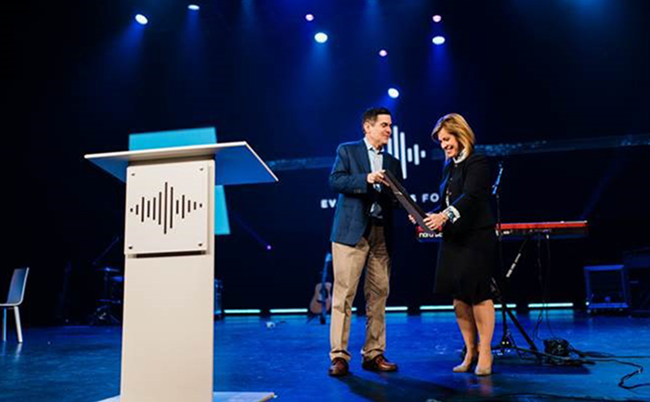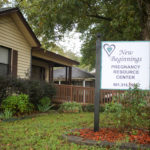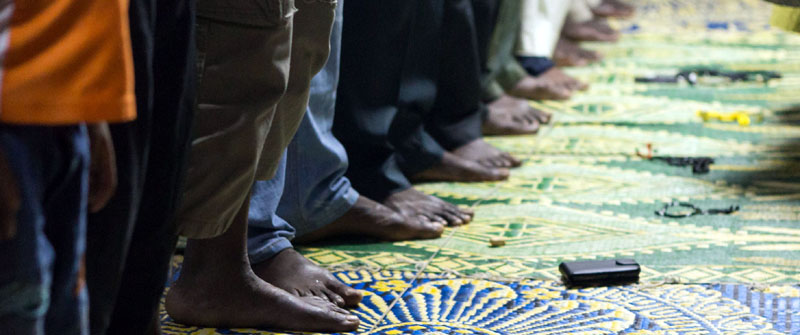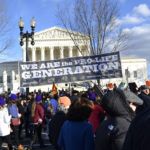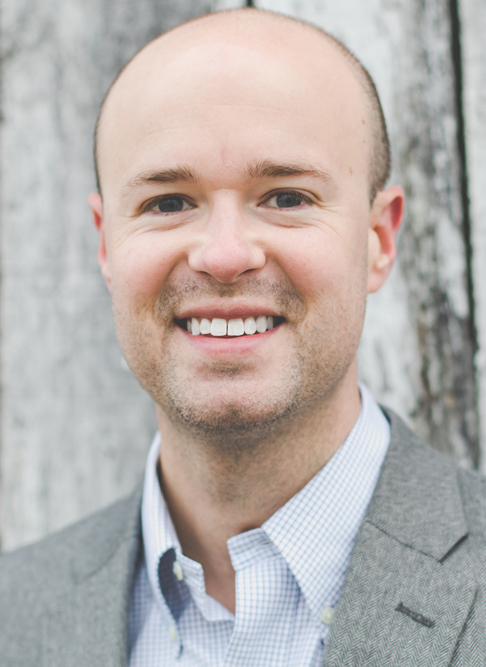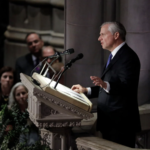
VIENNA, Va. (BP) — Pro-life Americans have cause to be encouraged because of God’s nature and developments in state legislatures, federal courts and the culture, said leading life and liberty lawyer Kristen Waggoner.
Waggoner offered her assessment of the pro-life cause Jan. 17 during the fourth annual Evangelicals for Life conference sponsored by the Southern Baptist Ethics & Religious Liberty Commission (ERLC). The two-day conference was held Jan. 16-17 at McLean Bible Church in Vienna, Va., a suburb of Washington, D.C.
The ERLC took the occasion to present its annual John Leland Religious Liberty Award to Waggoner, senior vice president of the United States legal division of Alliance Defending Freedom (ADF).
“I don’t know how you couldn’t be optimistic,” Waggoner told attendees during an interview conducted by Travis Wussow, the ERLC’s general counsel and vice president for public policy. “There’s just a whole lot of reasons to be optimistic about where the movement is going and that hopefully we’ll not just get to a place where the law says abortion is wrong but where we have a pro-life culture where it’s unthinkable.”
She provided the following among reasons for pro-life optimism:
— “First of all, we serve a God that knows man from the beginning, and it’s His desire to protect” human beings.
— Public opinion surveys show millennials are more pro-life than their parents, and “that trend will continue as technology advances with 4D ultrasound.”
— More states realize “the harm that abortion causes” and want to provide protection from such harms.
— Neil Gorsuch and Brett Kavanaugh, confirmed to the U.S. Supreme Court the past two years, appear to be originalists — judges who interpret the Constitution based on its initial meaning.
During the last two years, the U.S. Senate also has approved 30 circuit court judges and 53 district court judges whom pro-lifers can be hopeful about.
“So we’re filled with resilience; we’re filled with joy,” Waggoner said. “[N]o matter what circumstances look like, we’re people of hope.”
The November election provided “a mixed result,” she acknowledged. “Those who advocate for abortion definitely made some significant in-roads in this last election, but I think we do want to remember that pro-life lawmakers still hold a majority of states.”
It is still possible for states to pass “meaningful legislation that protects women and children, and that’s encouraging,” Waggoner told the audience.
Pro-life opportunities in Congress are not as hopeful, she admitted. Republicans controlled both chambers of Congress in the previous session, but Democrats, who are committed as a party to abortion rights, won a majority in the House of Representatives in November.
“It is disheartening,” Waggoner said. “We had an opportunity that I think in some ways passed, but we also … don’t know around the corner what God will provide. But we do know it will be difficult for pro-life legislation to get through the Congress this year.”
A goal of the pro-life movement is the reversal of Roe v. Wade, the 1973 Supreme Court opinion that struck down state abortion bans and legalized the procedure throughout the country.
“In terms of strategy, we need to have Roe overturned,” Waggoner told the audience. “Roe constitutionalized a right to abortion.
“We also at the same time need to be protecting religious freedom and protecting free speech,” she said, adding it will be difficult to advocate for the pro-life view if “we can’t speak about it.”
The Supreme Court has the opportunity this year, Waggoner said, to review three pro-life state laws that have been challenged: (1) An Indiana prohibition on abortions for reasons of sex or disability; (2) an Indiana requirement of an ultrasound test for the mother at least 18 hours before an abortion; and (3) an Alabama ban on “dismemberment” abortions.
ERLC President Russell Moore told the audience Waggoner was an “obvious choice” this year for the entity’s annual Religious Liberty Award.
During the last year, she “has been tireless and relentless in advocating for religious freedom,” Moore said in presenting Waggoner with a plaque. “She won a case that was not only significant for the people that she represented and for the people who were standing with them, [but] also important ultimately for the people who were upset about it and protesting it.”
In the Supreme Court’s most recent term, Waggoner argued before the justices on behalf of Jack Phillips and Masterpiece Cakeshop in an important religious freedom case. The justices ruled in a 7-2 decision the Colorado Civil Rights Commission violated the religious free exercise clause of the First Amendment by penalizing Phillips for declining to design and decorate a cake for the wedding of two men.
Leland — whom the ERLC’s Religious Liberty Award is named in honor of — was a Baptist pastor in Colonial America who was instrumental in helping secure religious freedom in the Constitution’s First Amendment.
